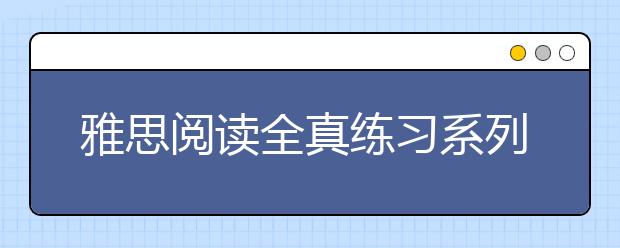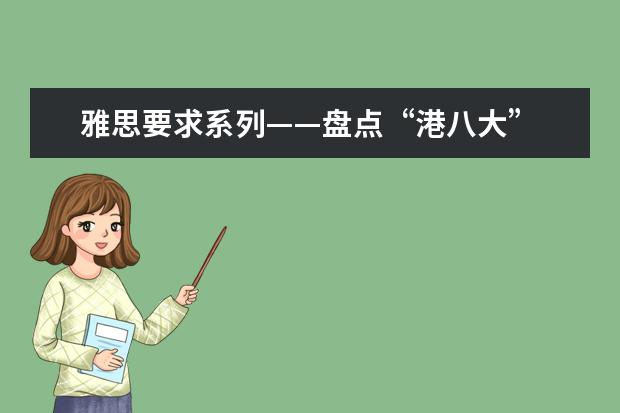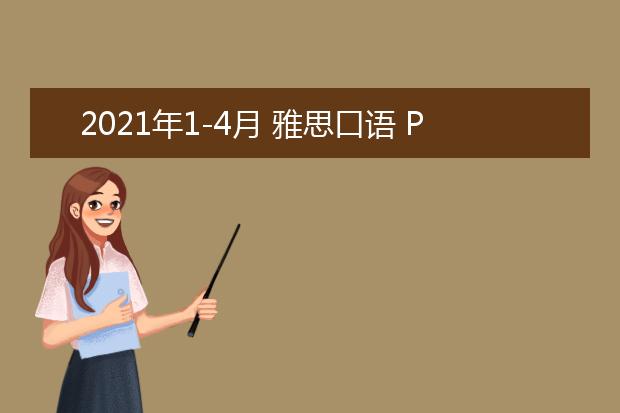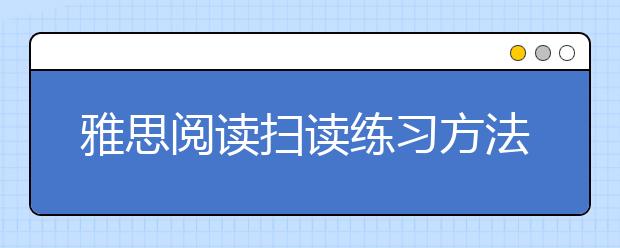当前城市:淄博[切换]
- 手机雅思无忧

扫码登录
雅思考试主要是通过对考生听、说、读、写四个方面英语能力的考核,综合测评考生的英语沟通运用能力,实现“沟通为本”的考试理念。对于雅思考生来说,也有很多考试难点和政策盲区需要帮助解答。今天雅思无忧网小编准备了雅思阅读全真练习系列:Seeking an energy holy trinity,希望通过文章来解决雅思考生这方面的疑难问题,敬请关注。
雅思阅读全真练习
本系列的模拟试题在难度、长度、题材、题型方面都与雅思考试近似的练习。这些练习,均以国外报刊上的文章为素材,按雅思阅读的题型,出题并提供答案及简单注释。进行雅思复习的同学可以在网页直接做题或将题目打印练习均可。
Seeking an energy holy trinity
1 NEELIE KROES, the European Union’s competition commissioner, did not mince her words when reporting on Europe’s energy markets on Wednesday January 10th. Europe’s energy firms have failed to invest in networks and so customers are suffering. Those “vertically integrated” energy companies such as Electricité de France (EDF) or Germany’s E.ON, widely dubbed as “national champions”, are effectively behaving like local monopolies. Shy of competition, eager for artificially high prices, they are helping to block the efficient generation, tran*ission and distribution of energy on the continent.
2 Energy prices vary wildly across Europe. Ms Kroes wants to see cheaper energy, and intends to push suppliers to divest their distribution network and to get them to invest more in transportation systems so that more energy—in the form of gas, or electricity, for example—can flow easily over borders. It is remarkably hard, for example, for gas-poor Germany to import from the neighbouring, gas-rich Netherlands. Companies that dominate national markets have, so far, had little interest in improving the interconnections which would mean lower prices for consumers across the continent.
3 Ms Kroes, of course, will struggle to get her way. The European Commission, which on the same day presented its recommendation for improving EU energy policy, also wants to see the unbundling of ownership, the legal separation of energy suppliers and transporters, something that the integrated energy companies and interested governments, notably in France and Germany, are bound to oppose ferociously.
4 Complicating the matter is an argument over the security of energy supply in Europe. Much has been made of the risk for western Europe of depending too heavily on Russian exports of gas. Russia under Vladimir Putin is prone to using energy exports as a blunt tool of foreign policy, especially when trying to bully countries in its hinterland. Last year Russia interrupted gas deliveries to Ukraine, affecting supplies in central and western Europe too. This week it blocked oil exports passing via Belarus to Europe, though that spat was soon resolved.
5 The risk is that concerns about security of supply may be used spuriously by those in Europe who oppose the sort of liberalisation encouraged by Ms Kroes. The likes of E.ON and EDF may claim that only protected national champions are able to secure supply, by striking long-term deals with powerful foreign suppliers. The Commission disagrees. Such deals are too often politically motivated and far from transparent. Protection has been tried for long enough and evidently has not worked for the internal market, nor have these companies secured the best deals for consumers from the Russians.
6 In contrast, the Commission's new policy proposes, ideally, a break-up of these companies into suppliers and distributors. (As a second best solution, especially for France and Germany, it recommends the management of the networks by a third party.) Properly independent managers of Europe's energy networks would have a strong incentive to build interconnecting pipelines and power lines across borders. For the gas market another means of ensuring competition and security would be finding a more diverse range of suppliers, for example by building more terminals for the import of liquified natural gas. It would also be likely to mean lower prices, if the example of liberalised Britain over the past ten years is anything to go by.
7 Whether any of this is likely to happen soon, however, is another matter. The Commission is also calling for European governments to agree on a common effort to reduce carbon emissions by at least 20% by 2020 (compared with 1990 levels). If America is willing to play ball, the Commission proposes to reduce emissions by as much as 30%. Achieving either target would mean promoting cleaner cars, a more effective emissions-trading system for Europe, wider use of public transport and a sharp increase in the use of renewable sources of energy, like wind and solar power. All that is laudable enough, but will also require political horse-trading as governments—Europe’s leaders are due to meet in March to discuss the various energy proposals—try to avoid commitments that may hurt domestic energy companies or make European firms less competitive than rivals in America, Asia and elsewhere.
(689 words)
Questions 1-5 Do the following statements reflect the views of the writer in the reading passage?
In boxes 1-5 on your answer sheet write
YES if the statement reflects the views of the writer
NO if the statement contradicts the views of the writer
NOT GIVEN if there is no information about this in the passage
1. Europe’s energy companies have funded the construction of the distribution network.
2. There has been a wide range of energy prices within Europe.
3. Gas-poor Germany has to pay a price higher than average to import gas from its neighbour.
4. E.ON and EDF may oppose the liberalisation due to their concerns about the security of energy supply.
5. The European Commission proposes to reduce carbon emissions by 30% if the U.S. is willing to cut its.
Questions 6-10 Look at the box of countries below.
Choose One or Two countries to complete the following sentences.
Write your answers in boxes 6-10 on your answer sheet.
Countries
A. Belarus
B. Britain
C. France
D. Germany
E. Russia
F. Ukraine
G. The U.S.
6. It’s dangerous for western Europe to depend too much on gas imports from ……
7. A liberalised policy of energy supply was enforced over ten years in …
8. Last year energy supplies in central and western Europe was affected owing to the interruption of gas deliveries to …
9. The governments in …… are bound to oppose the separation of energy suppliers and transporters?
10. Oil exports passing via … to Europe was blocked this week.
Questions 11-14
Choose NO MORE THAN THREE WORDS from the reading passage above for each answer.
Write your answers in boxes 11-14.
11. The EC disagrees with energy firms to strike long-term deals with foreign suppliers because such deals are usually far from …
12. The EC proposes to split those “national champions” into …
13. A more diverse range of suppliers would guarantee …in the European gas market.
14. The realization of carbon emissions reduction would require the promotion of cleaner cars, a better emissions-trading system, wider use of public transport and more use of … of energy.
 雅思阅读全真练习系列:Seeking an energy holy trinity
雅思阅读全真练习系列:Seeking an energy holy trinity
雅思阅读全真练习 本系列的模拟试题在难度、长度、题材、题型方面都与雅思考试近似的练习
2021年10月01日 12:19 雅思要求系列——盘点“港八大” 雅思多少分可以申请!
雅思要求系列——盘点“港八大” 雅思多少分可以申请!
雅思6.5能不能申请港中文硕士雅思6.5可以申请港中文硕士。但需要注意以下几点:最低分数要求:香港中
2026年01月28日 14:32 江苏雅思口语培训学校 英国圣三一TRINITY等级相当于雅思或者托福多少分? -...
江苏雅思口语培训学校 英国圣三一TRINITY等级相当于雅思或者托福多少分? -...
雅思考试主要是通过对考生听、说、读、写四个方面英语能力的考核,综合测评考生的英语沟通运用能力,实现“
2023年03月10日 07:58 宜昌圣三一雅思培训价格 英国圣三一TRINITY等级相当于雅思或者托福多少分? -...
宜昌圣三一雅思培训价格 英国圣三一TRINITY等级相当于雅思或者托福多少分? -...
雅思考试主要是通过对考生听、说、读、写四个方面英语能力的考核,综合测评考生的英语沟通运用能力,实现“
2023年03月20日 21:46 2020年9月雅思口语part2新题:Describe a person who is full of energy
2020年9月雅思口语part2新题:Describe a person who is full of energy
2020年9月雅思口语part2新题:描述一件你曾经忘记做的事 part 2话题
2021年09月24日 10:19 2021年1-4月 雅思口语 Part 2 Topic 7 精力充沛的人 Describe a person who is full of energy
2021年1-4月 雅思口语 Part 2 Topic 7 精力充沛的人 Describe a person who is full of energy
Describe a person who is full of energy You should
2021年11月12日 12:06 雅思G类阅读 Test 8 Section 1 – Eastern Energy & Using Microwave Oven
雅思G类阅读 Test 8 Section 1 – Eastern Energy & Using Microwave Oven
You should spend about 20 minutes on Questions 1-1
2022年02月28日 18:55 雅思写作考官范文 A类 Task1(饼状图) 第1期:sources of energy
雅思写作考官范文 A类 Task1(饼状图) 第1期:sources of energy
雅思考试主要是通过对考生听、说、读、写四个方面英语能力的考核,综合测评考生的英语沟通运用能力,实现“
2023年01月27日 15:21 雅思阅读扫读练习方法
雅思阅读扫读练习方法
对于雅思的学习,很多学员学习起来还是有一点困难的,特别是阅读阶段,为了大家更好的进行雅思阅读,今天小
2021年05月26日 13:25 2019雅思变化有哪些?2019雅思阅读与写作预测
2019雅思变化有哪些?2019雅思阅读与写作预测
2019年的雅思考试已经过去了两个月,在这两个月内,我们依然可以大胆的预测出2019雅思变化有哪些。
2021年05月27日 22:36